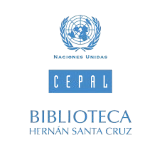Lei, literatura e transformação social: as obras de Gogol e Dostoiévski como ferramenta de conscientização cidadã e combate à aporofobia
Palavras-chave:
direito, obra literária, sociedade, pobreza, condição econômicaResumo
O presente artigo tem como objetivo realizar uma investigação para identificar de que forma a literatura pode auxiliar a elucidar e proporcionar uma perspectiva cidadã sobre fenômenos sociais relacionados à exclusão social, contribuindo para uma melhor compreensão da aporofobia, fenômeno que envolve o desprezo e aversão às pessoas pobres. Além disso, analisa-se de que modo essa compreensão social contribui para o combate realizado pelos mecanismos próprios do direito. A análise será conduzida por meio do exame das obras O Capote, de Nikolai Gogol, e Gente Pobre, de Fiódor Dostoiévski, a fim de compreender as representações literárias da exclusão social e suas possíveis implicações jurídicas no contexto brasileiro. Por meio dessa pesquisa, pretende-se promover uma reflexão crítica acerca do tema, incentivando o debate e aprofundamento das questões relacionadas à aporofobia em nosso contexto sociojurídico. Apoiando-se metodologicamente na pesquisa bibliográfica, pautada pelo método indutivo, elabora-se e confirma a hipótese inicial de que a literatura, como expressão da arte, atua como ferramenta auxiliar na expansão do processo de cognição do indivíduo, ampliando a consciência cidadã da população e cooperando para a eficácia das leis. Dessa forma, a literatura auxilia no combate à aporofobia, pressionando o Estado a agir de modo a promover nova legislação, ações e políticas públicas que visem a resolução de questões sociais que são inerentes à desigualdade social.
Downloads
Downloads
Publicado
Como Citar
Edição
Seção
Licença
Copyright (c) 2023 Revista do Tribunal Regional Federal da 1ª Região

Este trabalho está licenciado sob uma licença Creative Commons Attribution-NonCommercial-NoDerivatives 4.0 International License.
Ao submeterem artigos à Revista do Tribunal Regional Federal da Primeira Região, os autores declaram ser titulares dos direitos autorais, respondendo exclusivamente por quaisquer reclamações relacionadas a tais direitos, bem como autorizam a Revista, sem ônus, a publicar os referidos textos em qualquer meio, sem limitações quanto ao prazo, ao território, ou qualquer outra. A Revista fica também autorizada a adequar os textos a seus formatos de publicação e a modificá-los para garantir o respeito à norma culta da língua portuguesa.





















